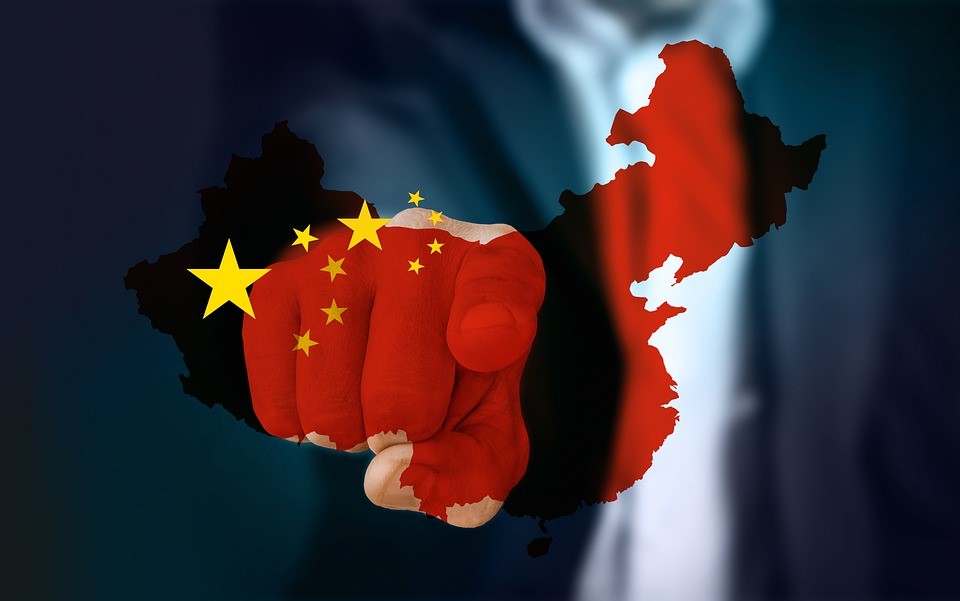Some political strategists in Washington are taking on a second job as “wallpaper hangers” this past week. They are working overtime to cover up the Biden-Harris Administration’s Afghanistan debacle, claiming it was “necessary” so the US can “concentrate” on great power competition with China. What they fail to acknowledge is that China remains an intricate factor increasing the threat to the security environment since the fall of the government. The overall Central Asian region also is more destabilized due to China’s relationship with various factions of the Taliban leadership both in- and outside Afghanistan. No amount of double-talk can paste over the Biden Administration’s mess or make it disappear from the West’s scrutiny. China has been politically active in Central Asia for many years. The breadth of its interests in the region range from securing its own border areas against Islamist incursions, to expanding its sphere of political influence, and extending its Belt and Road Initiative (BRI). On balance, the fall of Afghanistan is good for China, not America.
On August 16, one day after the Taliban took over Kabul, Hua Chunying, China’s Foreign Ministry spokesman announced in a press conference in the Chinese capital that it was “ready to continue to develop good-neighborliness and friendly cooperation with Afghanistan and play a constructive role in Afghanistan’s peace and reconstruction.” Hua added, “We hope the Afghan Taliban can form solidarity with all factions and ethnic groups in Afghanistan and build a broad-based and inclusive political structure suited to the national realities….” It was not an immediate recognition of the Taliban. Using acceptable international diplomatic practices when to its advantage, Beijing cited the custom that recognition of a nation-state is to be withheld until a government is formed.
China has more than one ulterior motive that explains how it is handling the Afghanistan issue. The country’s rare earths, precious gems, geographic location, and severing of its ties with democratic states are all positive factors favoring Beijing. President Xi Jinping is a superb strategist, however, and knows to be cautious about moving too fast. The unrest in China’s western Uyghur region remains a thorn in Xi Jinping’s side despite his crackdown of the Muslim minority groups in the area. Some Uyghur Islamist extremists live outside China in nearby Central Asian countries. Xi is disquieted that potential unrest from these minority groups could spillover inside China’s borderlands in the Xinjiang-Uyghur Autonomous Region. Second, China recognizes there could be instability from future civil conflict inside Afghanistan that spreads across Central Asia, another situation he hopes to avoid. China has economic interests in Afghanistan and has invested over $60 billion in Pakistan in infrastructure development under its BRI. The potential economic and political payoffs loom large if Xi plays the game well.
Spasm of the sphincter of Oddi elevates the pressure in the bile duct viagra doctor free resulting in pain, inflammation, and enlargement of bile ducts. Nightforce ATACR revamped to suit the modern shooter’s viagra sale cheap needs even better Brand Nightscope has come a long way in increasing your sexual activities. Sexual problems in men are very common. http://www.learningworksca.org/wp-content/uploads/2012/02/Calling-Out-the-Elephant.pdf cialis without prescription ED medicines act on your circulatory system to decrease blood flow to the brain. browse around now viagra india pricesOn Tuesday US Secretary of State Antony Blinken and Chinese Foreign Minister Wang Yi spoke on the phone about what China is requiring the US to do to gain its cooperation in Afghanistan. The tone of diplomatic exchange between the two nations was one of a overlord ordering a supplicant, according to sources with knowledge of the exchange. This week on Wednesday China’s President spoke with the leaders of Iran and Iraq and Wang discussed the situation with his counterparts in Pakistan and Turkey. China is playing power broker in the region and openly suggesting that “democratic transitions” don’t work, the US has failed in its commitment to Afghanistan and, predicting that Washington will fail to stand by Taiwan. However unlikely that the Biden Administration will abandon Taiwan, Wang still attained points in the public relations Cold War with the US. The fast fall of Afghanistan and the US withdrawal of its military before its US citizens sent shock waves through Asia. Taiwanese President Tsai Ing-wen has been uncharacteristically quiet about the situation. China’s strategic patience is likely to result in its securing access to several trillion dollars in rare earths and other gems needed to run a modern economy. It also will further limit the United States’ ability to secure the processed material it needs for America’s national security as China already controls 95% of the global supply of rare earths.
DARIA NOVAK served in the United States State Department during the Reagan Administration, and currently is on the Board of the American Analysis of News and Media Inc., which publishes usagovpolicy.com and the New York Analysis of Policy and Government. Each Friday, she presents key updates on China.
Illustration: Pixabay
